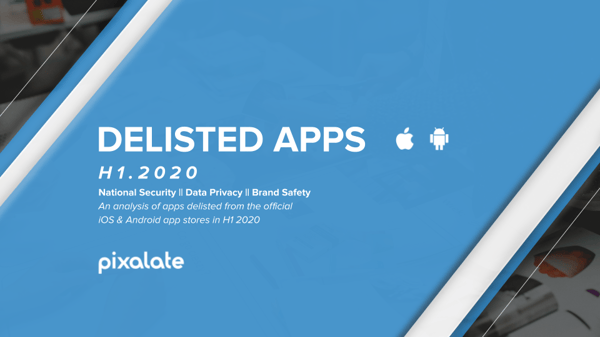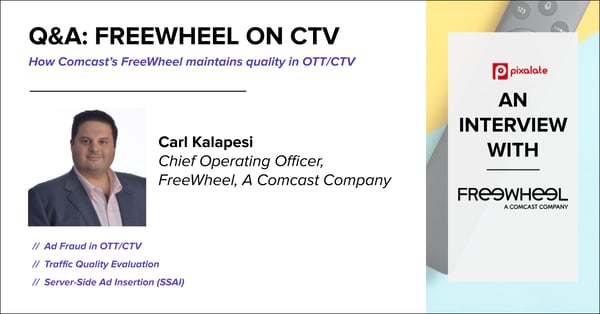
This week's review of ad fraud and quality in the digital advertising space.

Pixalate's latest research reveals that over 800,000 apps were delisted across the Google Play and Apple App stores in H1 2020. The report shines a light on the previously undisclosed corner of the mobile app ecosystem: Delisted apps.

Pixalate recently released its inaugural Connected TV Seller Trust Index (CSTI) to benchmark the overall quality of programmatic sellers in the OTT/CTV landscape across Roku, Amazon, and Samsung platforms.
In our Q1 2020 CTV Seller Trust Index, Comcast's FreeWheel ranked particularly well across the board. Pixalate spoke with FreeWheel COO Carl Kalapesi to discuss FreeWheel's efforts for maintaining a quality programmatic OTT/CTV marketplace.

"Despite unprecedented efforts from the ad industry and law enforcement, fraud continues to blight the sector," wrote Adweek in a piece examining how ad fraudsters have flourish during COVID-19. "Pixalate ... identified app stores as a point of vulnerability, claiming Google delisted 500,000 Android apps, which accounted for over 14 billion downloads, in the first half of 2020, while Apple delisted 300,000 apps during the same period," wrote Adweek.

"[D]eveloper security firm Snyk claims it found malicious code inside a popular iOS SDK used by more than 1,200 iOS applications, all collectively downloaded more than 300 million times per month," reported ZDNet. "According to Snyk, this malicious code was hidden inside the iOS SDK of Mintegral, a Chinese-based advertising platform."
5. US programmatic display will still grow this year

"Programmatic display spending in the US will continue to grow this year, despite the recession, but at a severely depressed rate before bouncing back in 2021," wrote eMarketer. "Programmatic advertising will be buoyed by mobile spending, which will rise by $3.93 billion; by video spending, which will increase by $2.83 billion; and by programmatic direct transactions, which will account for $4.07 billion in incremental spending."
*By entering your email address and clicking Subscribe, you are agreeing to our Terms of Use and Privacy Policy.
These Stories on Weekly Recaps
*By entering your email address and clicking Subscribe, you are agreeing to our Terms of Use and Privacy Policy.

Disclaimer: The content of this page reflects Pixalate’s opinions with respect to the factors that Pixalate believes can be useful to the digital media industry. Any proprietary data shared is grounded in Pixalate’s proprietary technology and analytics, which Pixalate is continuously evaluating and updating. Any references to outside sources should not be construed as endorsements. Pixalate’s opinions are just that - opinion, not facts or guarantees.
Per the MRC, “'Fraud' is not intended to represent fraud as defined in various laws, statutes and ordinances or as conventionally used in U.S. Court or other legal proceedings, but rather a custom definition strictly for advertising measurement purposes. Also per the MRC, “‘Invalid Traffic’ is defined generally as traffic that does not meet certain ad serving quality or completeness criteria, or otherwise does not represent legitimate ad traffic that should be included in measurement counts. Among the reasons why ad traffic may be deemed invalid is it is a result of non-human traffic (spiders, bots, etc.), or activity designed to produce fraudulent traffic.”

